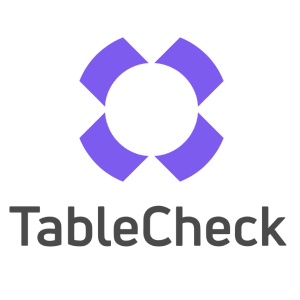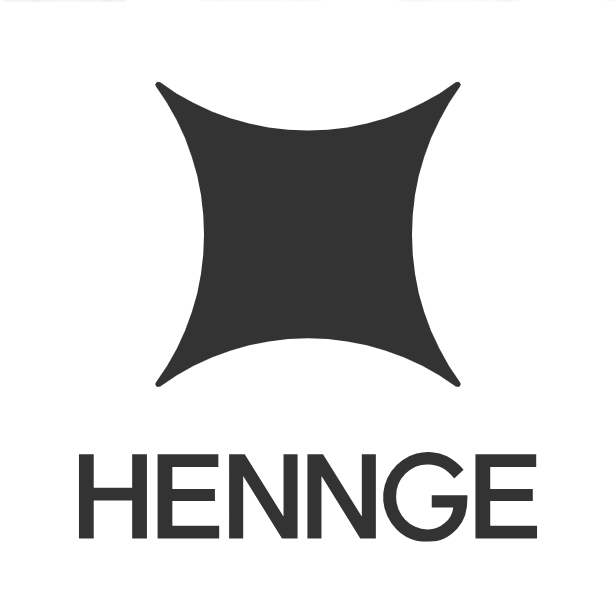Updated November 20, 2025
Rust in Japan - Language Guide
Rust, the programming language created as an open-source project back in 2010, has become a relatively popular language since its conception.
While it may not be at the top of the charts in terms of popularity, it still ranks 17th in job listings on Japan Dev. As the language is beginning to catch the attention of many newly established companies in Japan and demand for Rust engineers is on the rise, Rust’s time under the spotlight is long overdue.
So, in this post, I’ll talk about Rust in Japan, how it’s used, and which notable companies support this multi-paradigm language. I’ll also explore the financial prospects of Rust developers in Japan and provide a few tips on getting a Rust job here.
Let’s dive right in.
In this article: 📝
The Popularity of Rust Programming Language in Japan
Although Rust isn’t exactly a top-of-the-charts programming language in Japan, it’s still very much in the game.
At Japan Dev, we’ve collected lots of data over the years from the countless companies and listings featured on our job board. We’ve analyzed all the listings we’ve had on the platform, checked which languages are the most in demand, and ranked them accordingly.
According to our list, Rust is the 17th most popular programming language in Japan:
Popularity Rank |
Programming Language |
Median Salary |
#1 |
Python |
¥9.8 million |
#2 |
Java |
¥8.6 million |
#3 |
Go |
¥10.3 million |
#4 |
Javascript |
¥8.6 million |
#5 |
C++ |
¥9.3 million |
#6 |
Typescript |
¥9 million |
#7 |
Kotlin |
¥9.1 million |
#8 |
Ruby |
¥9.2 million |
#9 |
PHP |
¥8.7 million |
#10 |
Swift |
¥8.7 million |
#11 |
React |
¥9 million |
#12 |
Node.js |
¥8.5 million |
#13 |
R |
¥10.1 million |
#14 |
Scala |
¥10.86 million |
#15 |
Vue.js |
¥8.7 million |
#16 |
Objective-C |
¥7.2 million |
#17 |
Rust |
¥8.5 million |
Mind you, this isn’t just a popularity contest but data based on the number of jobs available. Considering this and the fact that Rust developers still earn more on average compared to other languages above it on the list, learning Rust is still worth it.
Besides, Rust has started to gain popularity among startups in Japan in recent years, and even some larger-scale international companies have adopted it in their day-to-day operations.
So, it’s safe to say that Rust developers can find jobs relatively quickly in Japan. With that in mind, let’s see exactly how Rust is used and its most common applications.
Rust in Action: How Is Rust Used in Japan?

As you may know, Rust is a general-purpose programming language by nature, so it’s utilized in many ways in a wide range of use cases. As it puts a stronger emphasis on type safety while maintaining fast performance, some companies use Rust as a replacement for C/C++. It’s also used for server-side applications and command-line tools.
So, thanks to its versatility and general applicability, it’s safe to say that Rust is fairly popular in Japan’s software development scene, even if it isn’t exactly competing for the most popular language spot.
Now, let’s talk about the financial prospects of Rust developers in Japan.
Rust Salaries in Japan: Financial Prospects of Rust Developers
As you can already tell by the table we’ve shared above, the median salary for Rust developers in Japan is ¥8.5 million annually.
If you’ve read my post on developer salaries in Japan, this is above the average of 7 million that platforms like Glassdoor claim. In fact, if we take the average developer salary as 4.6 million, as the Japanese survey service DODA suggests, the difference is even bigger, but ultimately, it all depends on the type of company.
Companies in Japan can be separated into three categories according to their salary range:
Traditional Japanese companies that typically offer the lower pay
Modern Japanese tech companies with global practices and a more satisfying salary
Large international companies that pay the most handsomely
Considering Rust’s recent popularity among startups and large companies, companies that hire Rust engineers are in the second and third categories. Therefore, despite not being a “top language,” Rust jobs still offer above-average salaries, good employment practices, and benefits.

Jobs Using Rust in Japan: Notable Companies That Use Rust
In Japan, quite a few companies, mainly startups, use the Rust programming language in their day-to-day operations in one way, shape, or form. You can see the number of Rust job listings we have on Japan Dev.
Our team frequently updates the listings with new ones, so the offers you see are what’s on the table at the moment. The companies are personally vetted by the Japan Dev team and are verified to have best practices, and there are surely many more opportunities out there.
Here are some of the most noteworthy companies that use Rust and have job listings on Japan Dev:
CADDi: This digital transformation company serves the manufacturing industry through an AI-powered data platform that analyzes supply chain data to optimize production activities. CADDi's backend engineers use Rust alongside TypeScript to build workflow engines and microservices that power their manufacturing platform.
Tektome: An architectural design AI platform developer, Tektome transforms unstructured data from scanned blueprints, CAD, and BIM files into structured formats. Tektome leverages multimodal language models to help AEC companies manage massive amounts of data through natural language-defined extraction pipelines and uses Rust in its daily operations.
estie This real estate tech startup solves transaction cost challenges caused by data fragmentation by building Japan's largest office real estate database. estie digitizes analog data to enable real-time information sharing across the commercial real estate market. The company's engineering team uses Rust to build its high-performance systems.
Datachain: Datachain specializes in blockchain interoperability research and FinTech product development. Datachain uses Rust to build cross-chain infrastructure, developing secure and high-performance blockchain solutions for financial institutions, including Japan's major banks.
NearMe: NearMe develops versatile ride-sharing services, from airport transfers to daily commutes. NearMe's engineering team uses Rust alongside TypeScript, Python, and React Native to build complex matching algorithms that optimize its ride-sharing system.
Flatt Security: This cybersecurity startup provides security services and products specifically designed for developers, offering custom-made diagnostic plans, penetration testing, and security education. The company leverages Rust's memory safety guarantees to build secure tools and services for the developer community.
Now, let’s share some tips on how to land a job as a Rust engineer in Japan.
Tips For Finding Rust Jobs in Japan

The first thing you should know is that open source is your friend. Other than having a strong resume or an exceptional educational history, contributing to open-source projects is undoubtedly one of the best things you can do to increase your chances of getting hired.
If you don’t know where to begin and are new to working open-source, my guide to Japan’s open-source community can be a useful resource to get you started.
Attending Rust Conferences and Meetups
Working on Rust-based community projects is a good idea, but if you don’t feel up for the task just yet, you can start simply by dipping your toes first. For this, socializing among the Rust community in Japan, attending events and meetups, and getting to know other Rust developers can be highly effective.
For instance, Tokyo Rust Meetup is an English community you can join as an expat. You can check out other Tokyo tech events in my post here. I also have separate posts for Kansai region (Osaka and Kyoto) tech communities and Fukuoka tech meetups where you can find like-minded Rust developers.
Final Word on Rust Programming Language
As you can tell by its recent popularity, Rust’s journey in Japan seems to be just beginning. As more companies adopt the language in their daily operations, the career prospects in Rust development seem promising.
To go over the main points we’ve covered:
Rust is currently the 17th most popular language among companies on Japan Dev’s job board.
The median salary Rust engineers earn, according to our data, is ¥8.5 million.
Due to its versatility, companies utilize Rust in many ways, mostly as a replacement for C/C++ but also for server-side applications.
Due to its recent popularity among startups and large companies, Rust engineers tend to earn salaries that are on the higher side.
Make sure to check out our Rust job listings frequently to find a job as a Rust engineer at a modern Japanese tech company. If you want to increase your chances of getting hired, I recommend working on open-source projects or attending Rust conferences to get to know key people in Rust development in Japan.
While this is all I have on Rust programming language and Rust salaries in Japan, if you want to learn Rust or another programming language, you can check out my top coding bootcamps in Tokyo post, which should give you a headstart.
Get Job Alerts
Sign up for our newsletter to get hand-picked tech jobs in Japan – straight to your inbox.







